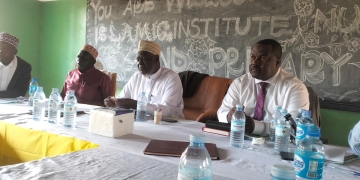
KAMPALA —According to a report from the Ugandan government, the number of Ugandans classed as middle-class residents have risen to 15.64 million.
The information is courtesy of the Uganda National Household Survey (UNHS) and the Ministry of Finance’s Poverty Status Report, 2021.
The study released a week ago after being introduced on February 9 indicated that at least 1.52 million Ugandans have entered the middle class, and they “had secured better livelihoods compared to the period ended 2017.”
According to the research, the rise represents a “good trend compatible with Uganda Vision 2040,” with the number of middle-class Ugandans rising from 14.12 million during the period ended 2017 to 15.64 million in 2022.
A middle-class society, according to the study, is one that has a sustainable quality of living and a low probability of sliding into poverty. In other words, it is characterized by real income growth that is consistent with a middle-income economy.
Within the report, it is shown that despite the middle class historically being predominantly urban, they are now slowly but surely expanding into rural regions. For example, of the 15.64 million Ugandans classified as middle class, 56.56% reside in urban settings and 31.52% reside in rural areas.
Furthermore, the report shows that the middle class has grown from 27.2% during the period ended 2010 to 31.52% in rural areas, while in urban areas it has declined from 57.7% during the same period to 56.65%.
The largest percentage is seen in Kampala, where at least 40.66% of the population is classed as belonging to the middle class. According to the survey, Kampala’s middle-class population increased by 3.8% between 2017 and 2020, while the percentages of the poor and insecure non-poor decreased by 38% and 11.9% respectively.
“In Uganda, there is a strong national aspiration to reach a middle-income economy with a per capita income of $1,039 (Shs3.7m),” the report reads in part. Uganda is a lower-middle-income nation, according to the Ugandan government. However, the World Bank has refuted this, igniting a heated discussion between the government and one of Uganda’s biggest international lenders.










